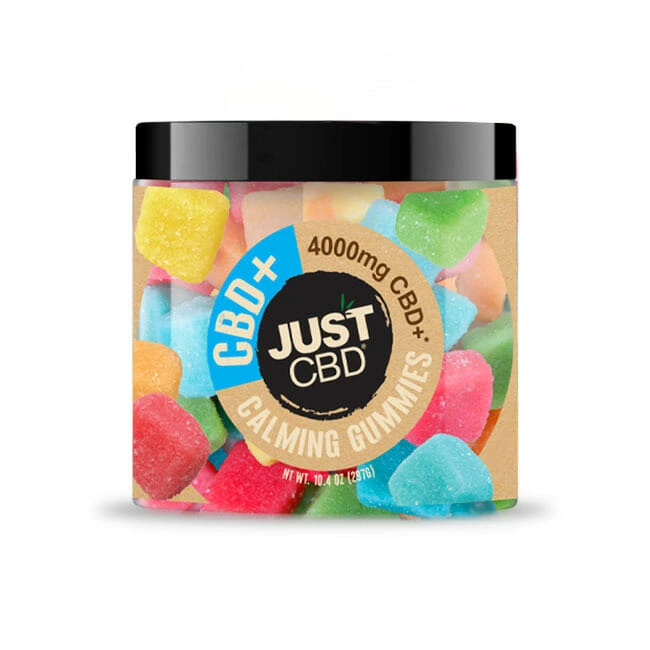Potential Mechanisms of Action
Understanding how cannabidiol (CBD) might alleviate depression symptoms involves exploring its potential mechanisms of action. CBD interacts with the body’s endocannabinoid system, which plays a role in regulating mood, sleep, and inflammation. Research suggests CBD may influence serotonin receptors, neurotransmitters involved in mood regulation, and also possess antioxidant and anti-inflammatory properties that could contribute to reducing depressive symptoms.
Endocannabinoid System and Depression
The endocannabinoid system (ECS) is a complex network of receptors and neurotransmitters involved in maintaining various bodily functions, including mood, sleep, appetite, and pain perception. CBD interacts with the ECS by binding to its receptors, primarily CB1 and CB2, although it doesn’t activate them directly like THC does. This interaction can modulate the activity of these receptors, influencing downstream signaling pathways related to mood regulation.
One potential mechanism through which CBD may exert antidepressant effects is by influencing serotonin receptors. Serotonin is a neurotransmitter critical for regulating mood, and imbalances in serotonin levels are linked to depression. Studies have shown that CBD can increase serotonin levels and enhance the activity of serotonin receptors, potentially contributing to an improvement in mood.

Furthermore, CBD possesses antioxidant and anti-inflammatory properties. Chronic inflammation has been implicated in the development and progression of depression. By reducing inflammation, CBD may help alleviate some of the underlying biological mechanisms contributing to depressive symptoms.
Neurotransmitter Modulation
CBD’s potential antidepressant effects are thought to arise from several mechanisms:
- Modulation of the Endocannabinoid System: While CBD doesn’t directly activate CB1 and CB2 receptors like THC, it interacts with them, influencing signaling pathways related to mood regulation.
- Serotonin Receptor Interaction: CBD may increase serotonin levels and enhance the activity of serotonin receptors, potentially mitigating mood imbalances associated with depression.
- Antioxidant and Anti-inflammatory Effects: Chronic inflammation is linked to depression. CBD’s antioxidant and anti-inflammatory properties could help reduce this inflammation, contributing to symptom relief.
Preclinical Studies and Evidence

Before exploring the potential benefits of CBD gummies for managing depression symptoms, it is crucial to examine the existing preclinical evidence. Preclinical studies involve research conducted on animal models and cell cultures, providing valuable insights into CBD’s biological effects and mechanisms of action. While these findings offer a foundation for understanding CBD’s potential therapeutic applications, it is important to recognize that they do not necessarily translate directly to humans.
Animal Research Findings
Preclinical studies have shown promising results regarding CBD’s potential antidepressant effects.
- Rodent studies have demonstrated that CBD can reduce anxiety-like behaviors and improve depressive-like symptoms in animal models of depression.
- Research on cultured neurons has indicated that CBD may enhance the growth and survival of neurons, potentially contributing to neuroprotective effects relevant to depression.
- Studies exploring the impact of CBD on inflammation have shown reductions in pro-inflammatory cytokines in both animal models and cell cultures, suggesting a potential mechanism for alleviating depressive symptoms linked to inflammation.
In Vitro Studies
In vitro studies, conducted in controlled laboratory settings using isolated cells or tissues, provide crucial insights into the direct effects of CBD on biological processes. These studies have demonstrated that CBD can interact with various cellular pathways implicated in depression. For instance, researchers have observed CBD’s influence on the expression of genes involved in neurotransmitter synthesis and signaling, suggesting its potential to modulate mood regulation at a molecular level.
Moreover, in vitro experiments have shed light on CBD’s impact on inflammation within cells. Studies have shown that CBD can suppress the production of pro-inflammatory cytokines, signaling molecules implicated in the development and progression of depression. This anti-inflammatory activity further supports the potential for CBD to alleviate depressive symptoms by targeting underlying biological mechanisms.
Clinical Trials and Human Studies
Clinical trials and human studies play a crucial role in determining the safety and effectiveness of treatments like CBD gummies for managing depression symptoms. While preclinical research on animals and cell cultures provides valuable insights, it’s essential to conduct rigorous human studies to confirm these findings and assess the potential benefits and risks for individuals.
Limitations of Existing Research
Limitations of existing research in the field of CBD and its potential antidepressant effects include the relatively small sample sizes often observed in human clinical trials. Smaller sample sizes can result in reduced statistical power, making it more difficult to detect significant differences between treatment groups and increasing the likelihood of false-negative results.
- Small Sample Sizes
- Short Study Durations: Many clinical trials investigating CBD for depression have relatively short durations. This may not be sufficient to capture the long-term effects of CBD on mood, as antidepressant treatment often requires sustained use for optimal results.
- Variability in CBD Products: The market for CBD products is largely unregulated, leading to variations in product quality, potency, and composition. This inconsistency can make it challenging to compare results across different studies and generalize findings to the wider population.
Additionally, there is a need for more research exploring potential interactions between CBD and other medications commonly used to treat depression, such as selective serotonin reuptake inhibitors (SSRIs). Understanding these interactions is crucial to ensure patient safety and optimize treatment strategies.
Promising Results
While preclinical studies on animals and cell cultures have shown promising results regarding CBD’s potential antidepressant effects, it is crucial to emphasize that these findings do not automatically translate to humans. Clinical trials and human studies are essential for definitively determining the safety and effectiveness of CBD gummies in managing depression symptoms.
- Rodent studies have demonstrated that CBD can reduce anxiety-like behaviors and improve depressive-like symptoms in animal models of depression.
- Research on cultured neurons has indicated that CBD may enhance the growth and survival of neurons, potentially contributing to neuroprotective effects relevant to depression.
- Studies exploring the impact of CBD on inflammation have shown reductions in pro-inflammatory cytokines in both animal models and cell cultures, suggesting a potential mechanism for alleviating depressive symptoms linked to inflammation.
Further research is needed to address limitations such as small sample sizes, short study durations, and variability in CBD products. Exploring potential interactions between CBD and other medications commonly used for depression is also crucial.
Dosage, Administration, and Side Effects
Understanding the proper dosage, administration, and potential side effects of CBD gummies is essential before considering their use for managing depression symptoms.
Recommended Dosages for Depression
While research suggests promising possibilities, it’s important to approach CBD as a complementary therapy rather than a replacement for conventional treatments. Consult with a qualified healthcare professional for personalized advice on incorporating CBD into your treatment plan.
Recommended dosages of CBD for depression vary widely depending on factors such as individual body chemistry, the severity of symptoms, and the specific product used. Start with a low dose and gradually increase it as needed while closely monitoring for any effects.
CBD gummies are typically taken orally, and the absorption rate can be affected by various factors like food intake and the formulation of the gummy itself.
Common side effects associated with CBD use include mild digestive discomfort, drowsiness, changes in appetite, and dry mouth.
Potential Adverse Effects
Dosage, administration, and potential side effects are important considerations when using CBD gummies. Recommended dosages can vary depending on individual factors like body chemistry and symptom severity. Start with a low dose and gradually increase it as needed while monitoring for any effects. CBD gummies are typically taken orally.
Common side effects associated with CBD use include mild digestive discomfort, drowsiness, changes in appetite, and dry mouth. It is essential to consult with a qualified healthcare professional before incorporating CBD into your treatment plan, especially if you have pre-existing medical conditions or are taking other medications.
Individual Variability and Considerations
Individual variability plays a significant role in how people respond to treatments, including CBD gummies for managing depression symptoms. Factors such as genetics, body chemistry, lifestyle, and the severity of depression can influence an individual’s response to CBD.
Factors Affecting CBD Efficacy
Individual variability is crucial to consider when exploring the effectiveness of CBD gummies for depression.
- Genetics: A person’s genetic makeup can influence how their body metabolizes and responds to CBD, affecting its efficacy.
- Body Chemistry: Individual differences in body chemistry, including enzyme activity and receptor density, can affect how CBD interacts with the endocannabinoid system and produces its effects.
- Lifestyle Factors: Diet, exercise, sleep patterns, and stress levels can all influence mood and potentially modulate the effects of CBD.
- Severity of Depression: The severity of depression symptoms can impact how well CBD may alleviate those symptoms.
These factors highlight the importance of personalized approaches to treatment and emphasize that what works for one person may not necessarily work for another.
Drug Interactions
Individual variability in response to CBD gummies for managing depression symptoms is significant. This variability stems from a range of factors:
- Genetics: Genetic differences influence how the body processes CBD, impacting its effectiveness.
- Body Chemistry: Variations in enzyme activity and receptor density affect CBD’s interaction with the endocannabinoid system.
- Lifestyle Factors: Diet, exercise, sleep, and stress levels can all influence mood and potentially modify CBD’s effects.
- Severity of Depression: The intensity of depressive symptoms can affect how well CBD alleviates them.
These factors underscore the need for personalized treatment approaches. What works for one person may not work for another. It is essential to consult with a qualified healthcare professional to determine if CBD gummies are appropriate and to establish a safe and effective dosage regimen.
Drug interactions can occur when CBD interacts with other medications, potentially altering their effectiveness or increasing the risk of side effects.
- SSRIs: CBD may interact with selective serotonin reuptake inhibitors (SSRIs), commonly used antidepressants.
- Blood Thinners: CBD could potentially increase the risk of bleeding in individuals taking blood thinners.
- Other Medications: CBD can interact with various other medications, including those for anxiety, seizures, and heart conditions.
It is crucial to discuss all medications and supplements with a healthcare professional before using CBD gummies to avoid potential interactions and ensure safety.
Future Directions and Research Needs
Future research directions in this field should focus on conducting large-scale, long-term clinical trials with standardized CBD products to confirm its efficacy and safety for treating depression. Investigating optimal dosages, administration routes, and potential synergistic effects when combining CBD with other antidepressants will be crucial. Moreover, exploring the impact of individual variability, genetic predispositions, and lifestyle factors on CBD’s effectiveness will provide a more personalized understanding of its therapeutic potential. Finally, elucidating the precise mechanisms by which CBD interacts with the endocannabinoid system and modulates neurotransmitter activity in the brain is essential for developing targeted and effective treatment strategies for depression.
Long-Term Studies
Future research should prioritize large-scale, long-term clinical trials using standardized CBD products to definitively establish its efficacy and safety for treating depression.
Understanding optimal dosages, administration methods, and potential synergistic effects when combining CBD with conventional antidepressants will be crucial in optimizing treatment strategies.
Investigating how individual variability, genetic factors, and lifestyle choices influence CBD’s effectiveness will allow for more personalized approaches to treatment.
Further elucidating the precise mechanisms by which CBD interacts with the endocannabinoid system and influences neurotransmitter activity in the brain is essential for developing targeted and effective therapies for depression.
Standardization and Regulation
Future research should focus on several key areas. First, large-scale, long-term clinical trials with standardized CBD products are needed to confirm its efficacy and safety for treating depression. These studies should investigate optimal dosages, administration routes (e.g., oral, sublingual), and potential synergistic effects when combining CBD with other antidepressants.
Second, it’s crucial to understand how individual variability influences response to CBD. Factors such as genetics, body chemistry, lifestyle choices, and the severity of depression can all play a role. Tailoring treatment strategies based on these individual differences will be essential for maximizing effectiveness.
Finally, more research is needed to elucidate the precise mechanisms by which CBD interacts with the endocannabinoid system and modulates neurotransmitter activity in the brain. This knowledge will pave the way for developing more targeted and effective therapies for depression.
Standardization and regulation of CBD products are critical for ensuring safety and efficacy. Currently, the market for CBD products is largely unregulated, leading to variations in product quality, potency, and composition.
This inconsistency makes it difficult to compare results across different studies and generalize findings. Implementing standardized manufacturing processes, rigorous quality control measures, and transparent labeling requirements will be essential for ensuring consumer safety and advancing scientific understanding of CBD’s therapeutic potential. Regulatory bodies should establish clear guidelines for the production, marketing, and sale of CBD products, including appropriate dosage recommendations and warnings about potential drug interactions.
Order CBD Gummies from Just CBD for health
Grab JustCBD cbd gummies online
KSP Rules Cakes
Melinda Wenner
- Xela Rederm Skin Booster Treatments Near Ottershaw, Surrey - January 14, 2026
- Xela Rederm Skin Booster Treatments Near Carshalton, Surrey - January 13, 2026
- Why The Craftsman Series Vape Is The Best Choice For Beginners - January 12, 2026
